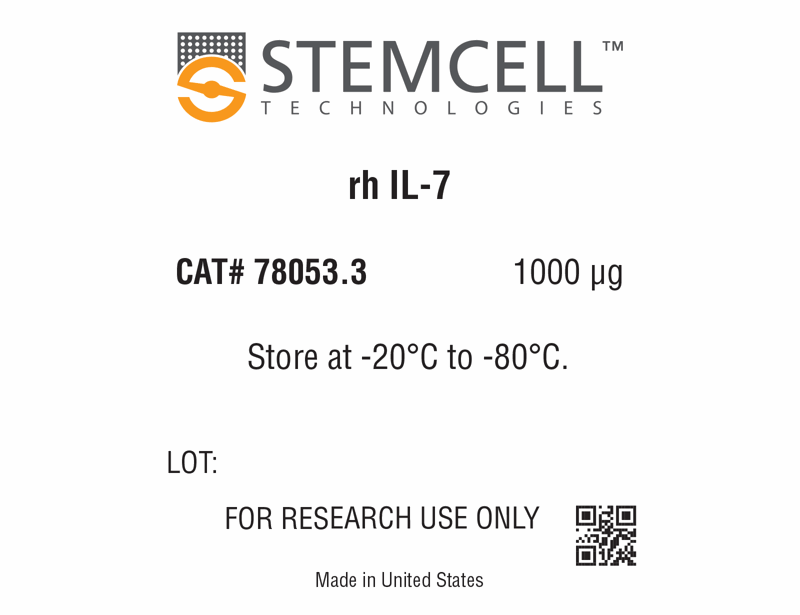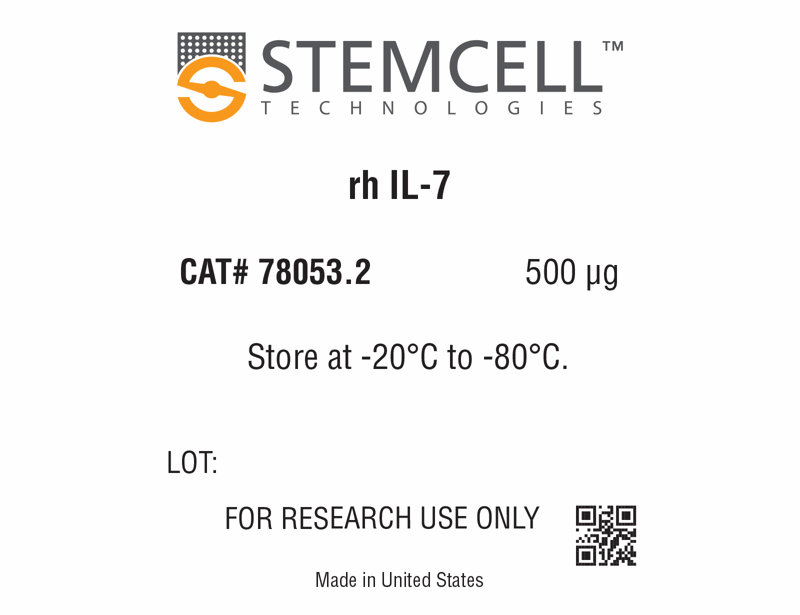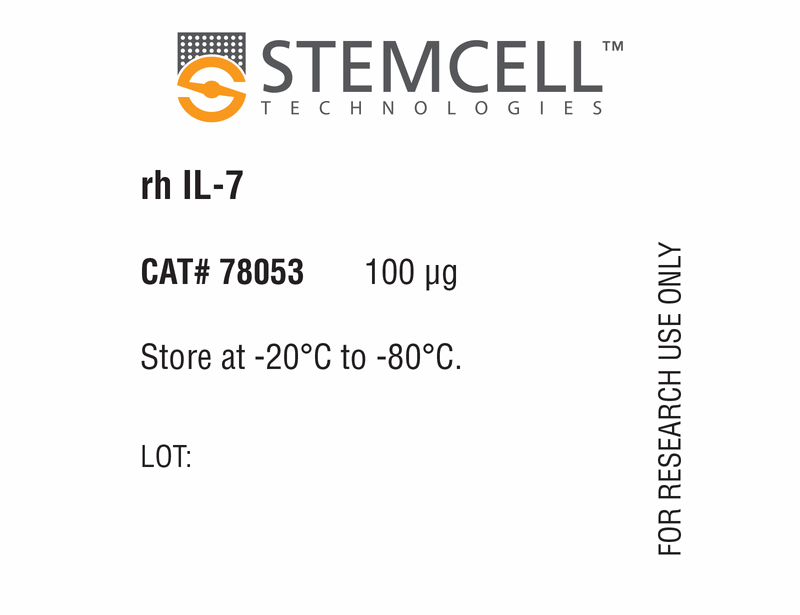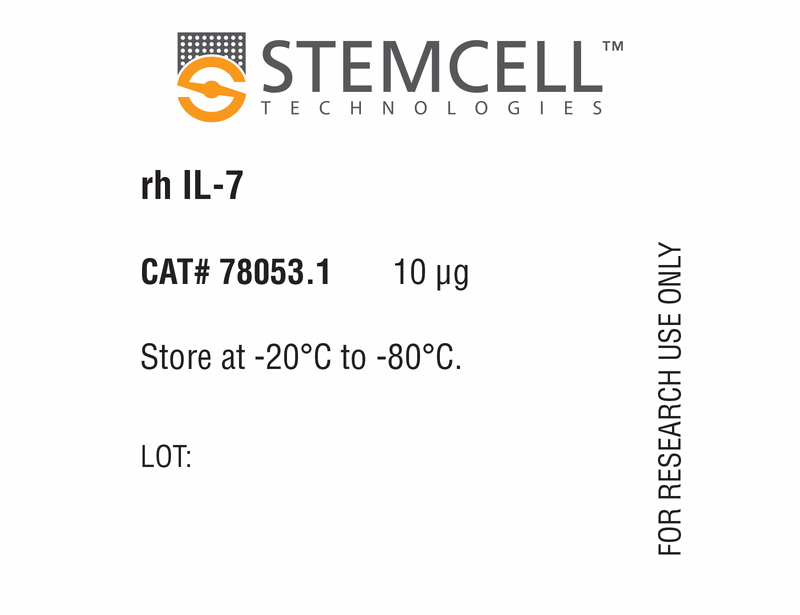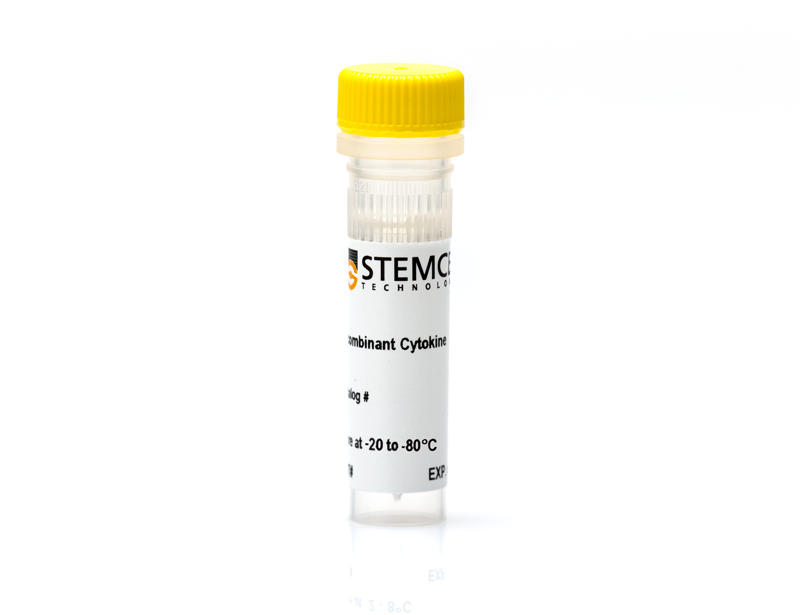概要
技术资料
| Document Type | 产品名称 | Catalog # | Lot # | 语言 |
|---|---|---|---|---|
| Product Information Sheet | Human Recombinant IL-7 | 78053, 78053.1, 78053.2, 78053.3 | All | English |
| Safety Data Sheet | Human Recombinant IL-7 | 78053, 78053.1, 78053.2, 78053.3 | All | English |
数据及文献
Data
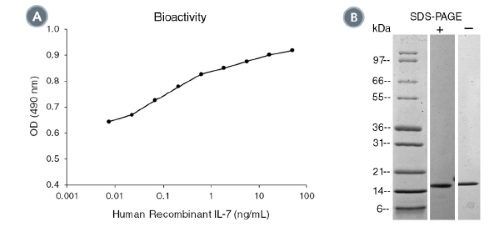
(A) The biological activity of Human Recombinant IL-7 was tested by its ability to promote the proliferation of 2E8 cells. Cell proliferation
was measured after 66 hours of culture using a fluorometric assay method. The EC50 is defined as the effective concentration of the
growth factor at which cell proliferation is at 50% of maximum. The EC50 in the above example is 0.06 - 0.09 ng/mL.
(B) 1 μg of Human Recombinant IL-7 was resolved with SDS-PAGE under reducing (+) and non-reducing (-) conditions and visualized by
Coomassie Blue staining. Human Recombinant IL-7 has a predicted molecular mass of 17.5 kDa.

 网站首页
网站首页
